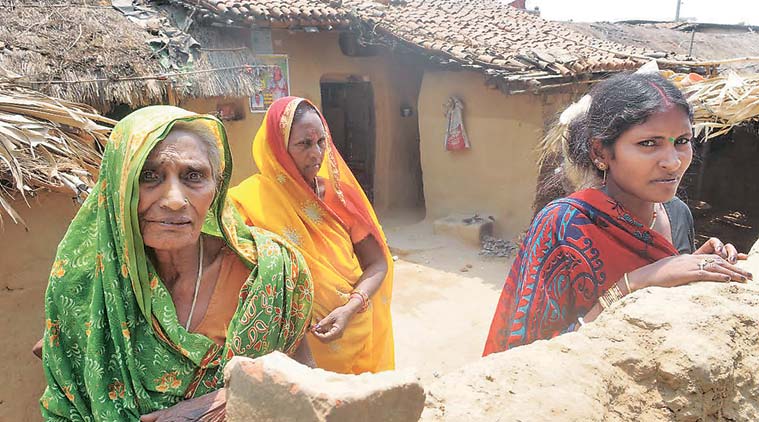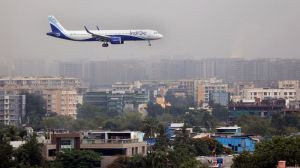Fifteen years after they were sentenced to death, families of those convicted for the Bara massacre here have lost track of their cases. A media visit draws curious villagers to the house of one accused, seeking to know if there is something new.
Ajay Das alias Ajay Mochi is not among them. His mother was pregnant with him when father Krishna Das alias Krishna Mochi was given death along with six others, in the February 13, 1992, killings of 35 upper-caste Bhumihars.

Sitting on a cot outside his mud-and-thatch house at Dhiwra village, 2 km from Bara, Ajay says he has grown tired of media visits. Admitting that he never goes to Bhagalpur jail to meet Krishna, now 58, Ajay says, “They tell me my father used to be an excellent clarinet player. I am living with the burden of not having seen him.”
[related-post]
The case of Krishna Mochi is reflective of the points raised in the Death Penalty Research Project.
Ajay is the youngest of Krishna’s four children, including a daughter. All the sons work as daily wagers. Krishna was not allowed to attend the wedding of any of the four.
Ironically, adds the family, Krishna used to be the member of a village wedding band. His father Chaitu Das, who died five years ago, was also a known band master.
The Bara massacre, in which MCC (now CPI-Maoist) members killed 34 Bhumihars, was part of a string of caste clashes in the area. The 1992 massacre itself was believed to be the fallout of six previous killings in 1990-91 in which 59 Scheduled Caste men and agricultural labourers were killed.
Story continues below this ad
In 1997, the upper castes carried out a revenge attack for the Bara massacre, leaving 58 Dalits dead in Laxmanpur-Bathe.
For the Bara massacre, the Gaya District and Sessions court gave death to Nanhelal Mochi, Krishna Mochi, Bir Kuer Paswan and Dharmendra Singh on June 8, 2001. The Supreme Court endorsed this in April 2002. In 2009, the designated TADA judge of Gaya sentenced Vyas Kahar, Naresh Paswan and Bugal Mochi to death. Of them, only Dharmendra was an upper caste, having turned against the dominant Bhumihars.
Later, Naresh was acquitted on grounds of lack of evidence and shoddy investigation, while the sentence of Vyas and Bugal was commuted to life.
Bhagalpur Central Jail authorities say the mercy pleas of the four other death row convicts, Nanhelal, Krishna, Bir and Dharmendra, were dispatched to the President on March 3, 2003. Says Vira Maharaj, a jail official, “Once a mercy petition is despatched, we get to know its status only when it is rejected.”
Story continues below this ad
In the Laxmanpur-Bathe case, incidentally, all the 26 upper caste accused convicted by a lower court were acquitted by the Patna High Court on grounds of inadequate evidence.
Says Krishna’s wife Chandramani Devi, “My husband was framed just because we were not dependent on upper castes for a living. He earned good money playing at weddings.”
Son Vinay says they go to meet Krishna at Bhagalpur, 225 km away, only when they can save some money. Jitendra Das, who is married to Krishna’s daughter Basanti, says, “Whenever we meet him, he requests us to plead his case. He has not lost hope yet.”
A few metres away from Krishna’s house are razed structures that were once homes of Nanhelal and Bhugal. Their families shifted to Baddi Bigha village in Gaya after their Dhiwra houses were set on fire in 1994, allegedly by some upper caste men.
Story continues below this ad
Nanhelal has two sons and Bugal six. All are daily wagers.
Naresh, who was among those sentenced to death, was acquitted in 2013. The family of his brother Krishnandan Paswan says Naresh had taken the help of upper castes to get out.
Naresh now lives in his wife’s village in Gaya and works as a daily wager.
The family of another death convict, Bir, 70, lives at Khutwar village, 1.5 km away from Dhiwra. His younger brother Karu says the Bara massacre accused were given death because they were SCs. “Earlier, police used to come. Now no one comes to share any information.”
Story continues below this ad
The 80-year-old Rajo Devi, who has spent 24 years now in wait of son Krishna, says they are helpless. “Vakil kabhi kehta hai Dilli se chitthi aayega, kabhi kehta hai Patna se aayega (The lawyer sometimes says relief will come from a Delhi court, sometimes he says Patna).”
WATCH INDIAN EXPRESS VIDEOS HERE

 Krishna’s family members at their home. (Source: Prashant Ravi)
Krishna’s family members at their home. (Source: Prashant Ravi)






